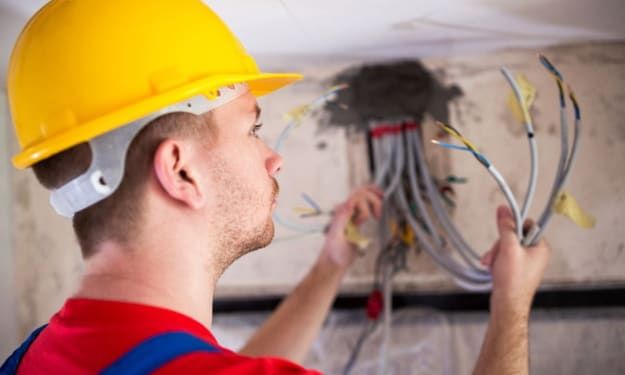The Ultimate Guide to a Property Home Inspection
Property Home Inspection

Introduction
Welcome to the ultimate guide to a property home inspection! At [Key Property Inspection Group], we understand the importance of a thorough home inspection before making a significant investment. In this comprehensive guide, we will walk you through the key aspects of a property home inspection, providing you with invaluable insights and tips to ensure a successful inspection process.
Why is a Home Inspection Important?
A home inspection plays a crucial role in the property purchasing process. It provides buyers with a comprehensive evaluation of the property's condition, helping them make an informed decision. An inspection can uncover potential issues or hidden defects that may impact the property's value, safety, and livability. By conducting a thorough home inspection, buyers can identify any areas of concern and negotiate repairs or adjustments with the seller.
Choosing a Qualified Home Inspector
Selecting a qualified home inspector is paramount to a successful inspection. When searching for an inspector, consider their certifications, experience, and reputation within the industry. Look for professionals who are members of reputable associations such as the American Society of Home Inspectors (ASHI) or the International Association of Certified Home Inspectors (InterNACHI). These organizations uphold high standards of practice and require ongoing education for their members.
Pre-Inspection Preparation
Before the scheduled home inspection, it's essential to prepare adequately. Here are some steps you can take to ensure a smooth process:
Gather Important Documents: Collect any relevant documents related to the property, such as previous inspection reports, maintenance records, and warranties.
Clear Access Areas: Ensure that the inspector has easy access to all areas of the property, including basements, attics, crawl spaces, and utility rooms. Remove any clutter or obstacles that may hinder the inspection process.
Notify the Seller: Inform the seller about the scheduled inspection, ensuring their cooperation and availability during the designated time.
The Inspection Process
During the inspection, the qualified home inspector will conduct a comprehensive evaluation of the property's visible and accessible components. Here are the key areas they will assess:
1. Exterior Inspection
The inspector will examine the property's exterior, including:
Roofing: Assessing the condition of the roof, shingles, gutters, and chimneys.
Siding and Trim: Checking for any signs of damage, deterioration, or moisture intrusion.
Foundation: Inspecting the foundation for cracks, settling, or structural issues.
Drainage: Evaluating the grading and drainage systems to ensure proper water management.
2. Interior Inspection
Inside the property, the inspector will meticulously examine:
Electrical Systems: Assessing the electrical panels, outlets, wiring, and switches for compliance with safety standards.
Plumbing Systems: Checking for leaks, proper water pressure, and functionality of fixtures, faucets, and drains.
HVAC Systems: Evaluating the heating, ventilation, and air conditioning systems for efficiency and proper functioning.
Appliances: Inspecting the condition and operation of kitchen appliances, including stoves, refrigerators, and dishwashers.
Windows and Doors: Examining windows, doors, and their frames for air leaks, damage, or faulty operation.
Walls, Ceilings, and Floors: Identifying any signs of water damage, cracks, or structural issues
After inspecting the property, the home manager creates a written report that contains all the information regarding the home. It takes into account all of the small damages' peculiarities. In the unlikely event, that they repair these issues without assistance from anybody else, the purchaser will select how much the cost will be accepted for their benefit. If you are a home seller, make sure to repair any damage to the residence. Maintaining a tidy house will make the home inspection process easier. To come to a more perfect agreement, you must confirm fixes before the home supervisor.
All of these items clarify the fundamental ideas behind house inspectors. This approach to buying and renting a house has several benefits. You could benefit from it in terms of time and financial savings. To have a better experience owning a property, it is therefore advisable for a person to engage a US Inspection Group.
Conclusion
All in all, we can say that certain activities help a home inspector evaluate a house. It does not only help an inspector but also a buyer and seller to know what they are going to buy or sell respectively. The first activity that is included in the inspection of the house and after that, there is documentation of the house.
About the Creator
KeyPropertyInspection
Key property inspection Group, the country's largest employee-based inspection company, Our buyers’ inspection group offers to encourage our clients to purchase a single-family home, condominiums, .






Comments
There are no comments for this story
Be the first to respond and start the conversation.